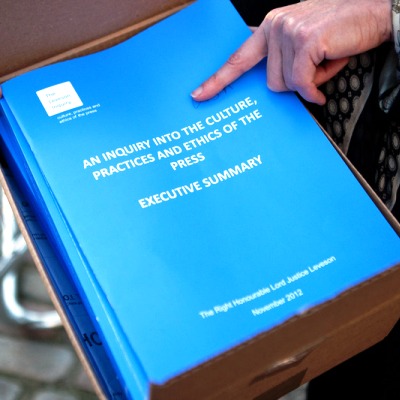19 Jul 2013 | In the News
CANADA
Guest Post: Hate speech laws in Canada: one step back, two steps forward?
This year has seen significant developments in Canada’s hate speech legislation, say attorneys Ryder Gilliland and Adam Lazier.
(Index on Censorship)
PAKISTAN
Facebook allegedly has “secret censorship deal” with Pakistan
A Pakistani human rights organisation has called for an investigation into an alleged “secret censorship deal” between the country’s government and Facebook. Sara Yasin reports
(Index on Censorship)
RUSSIA
US and UK condemn Navalny conviction
The American ambassador to Russia and the British Foreign Secretary have reacted strongly after a Kirov court today sentenced Russian opposition leader Alexei Navalny to five years in a penal colony, Sara Yasin reports
(Index on Censorship)
TURKEY
Journalist Ahmet Altan Receives 11 Months of Prison
Journalist Ahmet Altan received 11 months and 20 days of prison for insulting PM Erdoğan in his article “State Complicity and Morality”. While the sentence was commuted to a fine of 2,800 euros, Altan’s advocate found the verdict against European Convention on Human Rights.
(bianet)
UNITED KINGDOM
Pippa Middleton and Britain’s parody problem
Pippa Middleton is reported to have threatened legal action against a spoof twitter account and book. But a recent study claims that parody has cultural and economic benefits for Britain, and the government is set to loosen copyright laws, allowing people to freely use others’ creations for comedy. Padraig Reidy reports
(Index on Censorship)
UNITED STATES
Indiana Gov Sought To Ban Howard Zinn from Classrooms
Shortly after assuming his position as president of Purdue University last January, former Indiana Gov. Mitch Daniels (R) established his commitment to free speech in an open letter to “the people of Purdue.” In a section titled “Open Inquiry,” he declared, “A university has failed its special mission if it fails to protect free and open debate. … The ensuring of free expression is paramount.”
(In These Times)
Photos of bloodied Boston bombing suspect published in response to ‘Rolling Stone’ cover
Fighting free expression with free expression, an officer with the Massachusetts State Police who, like many Americans, was upset with Rolling Stone magazine’s new cover treatment of Boston Marathon bombing suspect Dzhokhar Tsarnaev, has published a series of photos in Boston Magazine that he believes more accurately represent Tsarnaev’s actions and character.
(The Verge)
Judge Upholds Law Meant to Keep Minors out of Porn
A federal law requiring pornography producers to verify performers are at least 18 years of age withstood an industry challenge Thursday after a federal judge rejected arguments the measure imposes burdensome record-keeping requirements that chill free speech.
(ABC News)
Fear: The greatest threat to free speech
At various times, every American likely has wished for less of some things that the First Amendment protects. Less hateful speech. One less noisy protest group. Or maybe even the swift departure of a media outlet or personality whose stance or voice is just grating on a personal level.
(The Daily Herald)
S.C. Supreme Court Rules FOIA Does Not Infringe on Free Speech of Public Bodies
The S.C. Supreme Court ruled Wednesday that the non-profit state Association of School Administrators can’t argue the Freedom of Information Act infringes on its 1st Amendment right to speech and association.
(Southern Political Report)
Previous Free Expression in the News posts
July 18 | July 17 | July 16 | July 15 | July 12 | July 11 | July 10 | July 9 | July 8 | July 5 | July 4
18 Jul 2013 | Digital Freedom, News, Pakistan
A Pakistani human rights organisation has called for an investigation into an alleged “secret censorship deal” between the country’s government and Facebook. Sara Yasin reports
According to Bytes for All (B4A), a representative of the Pakistan Telecommunication Authority claimed on 4 July that “the government of Pakistan has an existing ‘arrangement’ with Facebook, which allows them to have ‘undesirable content and Facebook pages blocked as per directions from the authority”.
In an open letter to the Global Network Initiative (GNI) — of which Facebook is a member — B4A said that if true, it is “betrayal by the company towards the users of Facebook in Pakistan. The claim is upsetting because if true, it breaches the trust of its users, vehemently opposes what Facebook publicly proclaims in its principles, and is in stark contrast to the social network’s commitment to freedom of expression, peaceful assembly, and association as a member of the Global Network Initiative”.
On 22 May, at this year’s Stockholm Internet Forum, it was announced that Facebook would join the GNI — a multi-stakeholder group dedicated to promoting and defending freedom of expression in the Information and Communication Technology (ICT) sector.
“As the largest social network, both in Pakistan and the global cyberspace, we feel that Facebook following its own principles and the principles of GNI can go a long way in ensuring that citizen’s right to access, privacy, and freedom of expression are preserved even under hostile and difficult environments”, said B4A.
B4A has also been embroiled in a battle to reverse a September 2012 decision to block YouTube. The country decided to block the video sharing site for refusing to take down a clip from controversial anti-Islam film “Innocence of Muslims.”
Sara Yasin is an Editorial Assistant at Index. She tweets from @missyasin
18 Jul 2013 | Media Freedom, United Kingdom

In an editorial published this morning, the Financial Times announced its support for the Royal Charter on press regulation put together by the newspaper industry.
The article said that while the FT agreed with the need for a “robust and independent regulation”, a new regulator should be “proportionate and sustainable.”
The article continued:
“Well-meaning reforms should not open the door to state interference in Britain’s free press.”
Acknowledging that the press had reluctantly accepted that there would be a royal charter for regulation of the press, the Financial Times argued:
[C]ertain points are non-negotiable. If press freedoms are to be preserved, the regime must be genuinely voluntary. It should also balance public protection with freedom of expression. A financially weak press should not be loaded with onerous obligations that deter it from pursuing contentious issues, where reporting serves the public interest and holds the powerful to account.
The industry’s plans to create the Independent Press Standards Organisation were revealed earlier this month. Index on Censorship greeted the proposal as “a starting point for proper discussion on the future“.
Hacked Off, which supports the government’s regulation proposal, reacted angrily to the Financial Times’ suggestion that that document had been “assembled over pizza in the early hours of the morning this spring”.
Director Brian Cathcart denied his group had been present at late-night negotiations, pointing out: “No pizza was served, or at least we saw none.”
18 Jul 2013 | Europe and Central Asia, Russia

Alexei Navalny addresses a rally (Pic: Roma Yandolin/Demotix)
The American ambassador to Russia and the British Foreign Secretary have reacted strongly after a Kirov court today sentenced Russian opposition leader Alexei Navalny to five years in a penal colony, Sara Yasin reports
(more…)


